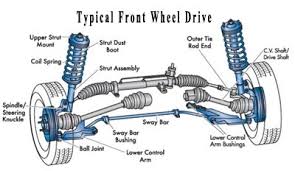strut
英 [strʌt]
美 [strʌt]
- vt. 炫耀;在…上趾高气扬地走;给…加支撑
- n. 支柱;高视阔步
- vi. 高视阔步;趾高气扬地走
TEM8 GRE
1. Struts 开源框架:Struts这个名字来源于在建筑和旧式飞机中使用的支持金属架。这个框架之所以叫"Struts",是为了提醒我们记住那些支撑我们房屋,建筑,桥梁,甚至我们踩高跷时候的基础支撑。这也是一个解释Struts在开发Web应用程序中所扮演的角色的精彩描述。
2. 谐音“是柱头”。
3. street + out => strout => strut.
strut 支杆,支柱最终来自 PIE*ster,僵硬的,生硬的,固定的,词源同 stark,stare,stereo.引申词义支杆,支柱。
- strut (v.)
- "walk in a vain, important manner, walk with affected dignity," 1590s, from Middle English strouten "display one's clothes proudly, vainly flaunt fine attire" (late 14c.), earlier "to stick out, protrude, bulge, swell," from Old English strutian "to stand out stiffly, swell or bulge out," from Proto-Germanic *strut- (cognates: Danish strutte, German strotzen "to be puffed up, be swelled," German Strauß "fight"), from PIE root *ster- (1) "strong, firm, stiff, rigid" (see stereo-).
Originally of the air or the attitude; modern sense, focused on the walk, first recorded 1510s. Related: Strutted; strutting. To strut (one's) stuff is first recorded 1926, from strut as the name of a dance popular from c. 1900. The noun meaning "a vain and affectedly dignified manner of walking" is from c. 1600. - strut (n.)
- "supporting brace," 1580s, perhaps from strut (v.), or a cognate word in Scandinavian (compare Norwegian strut "a spout, nozzle") or Low German (compare Low German strutt "rigid"); ultimately from Proto-Germanic *strutoz-, from root *strut- (see strut (v.)).
- 1. He got up to strut his stuff on the dance-floor.
- 他起身到舞池里炫耀自己的舞技。
来自柯林斯例句
- 2. One strut had fractured and been crudely repaired in several places.
- 一根撑木出现了裂痕,有几处已进行了粗略的修补。
来自柯林斯例句
- 3. This strut braces the beam.
- 这根柱子支撑房梁.
来自《简明英汉词典》
- 4. Now we'll strut arm and arm.
- 这会儿咱们可以手挽着手儿,高视阔步地走了.
来自辞典例句
- 5. This behavior is similar to buckling of strut.
- 这种状态类似于压杆的屈曲.
来自辞典例句
[ strut 造句 ]
